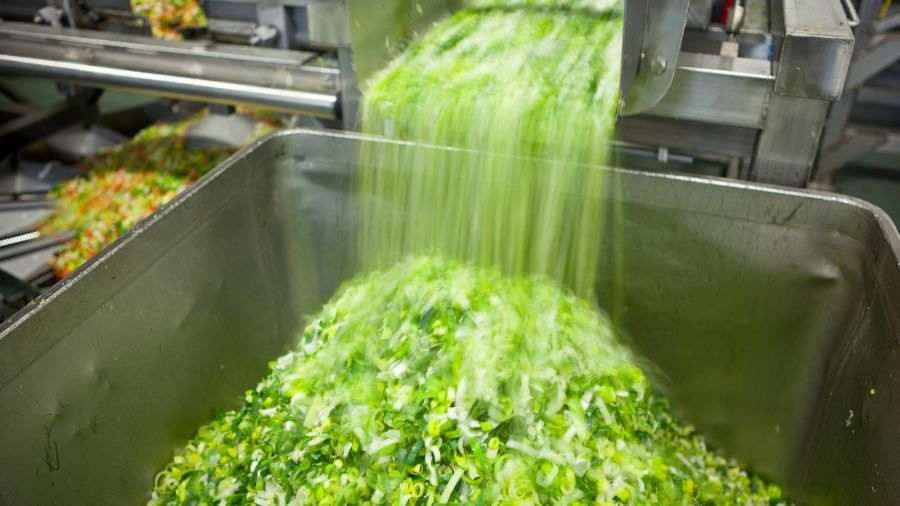Revolutionizing Agribusiness with the Impact of Advanced Food Processing Machines

Image: Collected
In the dynamic world of agribusiness, cutting-edge technology is transforming the way we produce food. Advanced Food Processing Machines are playing a pivotal role in this transformation, revolutionizing crop processing and farm produce handling.
In recent years, the global market for Food Processing Machines has shown significant growth, projected to reach unprecedented levels by year-end. These machines are reshaping how we approach food production, bringing efficiency and precision to various stages of the process.
Crop processing, a crucial aspect of agriculture, has seen remarkable improvements with the use of Food Processing Machines. These machines employ advanced methods to enhance the precision of sorting and grading crops, resulting in higher-quality yields and reduced wastage. This contributes to a more sustainable and efficient agricultural ecosystem.
Efficiency is paramount in modern agriculture, and Food Processing Machines are driving this efficiency, particularly in farm produce processing. Utilizing state-of-the-art technologies, these machines optimize sorting, cleaning, and packaging processes. The industry is witnessing a surge in demand, with an increase in orders from agribusinesses globally.
The market dynamics for Food Processing Machines are undergoing significant changes as demand rises. Numerous suppliers and manufacturers are actively contributing to this growth, fostering innovation and driving down costs. This competition is making these technologies more accessible to a broader range of agribusinesses.
Global trends in the Food Processing Machines industry highlight a strong focus on sustainability and automation. Manufacturers are incorporating eco-friendly materials and energy-efficient technologies into their machines. Automation is streamlining production processes, reducing manual labor, and enhancing overall operational efficiency. The global market is responding positively to these trends, with increased investments and partnerships in the Food Processing Machines sector.
Despite the industry's upward trajectory, challenges exist. Supply chain disruptions, fluctuating raw material prices, and the need for skilled operators pose hurdles for market players. However, these challenges also present opportunities for innovation and strategic partnerships. Agribusinesses that embrace the transformative power of Food Processing Machines can gain a competitive edge in the global market.
In recent years, the global market for Food Processing Machines has shown significant growth, projected to reach unprecedented levels by year-end. These machines are reshaping how we approach food production, bringing efficiency and precision to various stages of the process.
Crop processing, a crucial aspect of agriculture, has seen remarkable improvements with the use of Food Processing Machines. These machines employ advanced methods to enhance the precision of sorting and grading crops, resulting in higher-quality yields and reduced wastage. This contributes to a more sustainable and efficient agricultural ecosystem.
Efficiency is paramount in modern agriculture, and Food Processing Machines are driving this efficiency, particularly in farm produce processing. Utilizing state-of-the-art technologies, these machines optimize sorting, cleaning, and packaging processes. The industry is witnessing a surge in demand, with an increase in orders from agribusinesses globally.
The market dynamics for Food Processing Machines are undergoing significant changes as demand rises. Numerous suppliers and manufacturers are actively contributing to this growth, fostering innovation and driving down costs. This competition is making these technologies more accessible to a broader range of agribusinesses.
Global trends in the Food Processing Machines industry highlight a strong focus on sustainability and automation. Manufacturers are incorporating eco-friendly materials and energy-efficient technologies into their machines. Automation is streamlining production processes, reducing manual labor, and enhancing overall operational efficiency. The global market is responding positively to these trends, with increased investments and partnerships in the Food Processing Machines sector.
Despite the industry's upward trajectory, challenges exist. Supply chain disruptions, fluctuating raw material prices, and the need for skilled operators pose hurdles for market players. However, these challenges also present opportunities for innovation and strategic partnerships. Agribusinesses that embrace the transformative power of Food Processing Machines can gain a competitive edge in the global market.
Previous Story
- Beloved fast food chain enters a bankruptcy death...
- Anheuser-Busch (BUD) Sells 8 Beer & Beverage Brands...
- The Rise of Healthy Fast Food: A Growing...
- Estonia's Bolt, Starship in food delivery robot deal
- Eating disorder group pulls chatbot sharing diet advice
- Exploring the Flourishing World of Organic Health Foods
- Fast Food Industry Experiences Surge in Demand for...
- Why honey, taken in moderation, is good for...